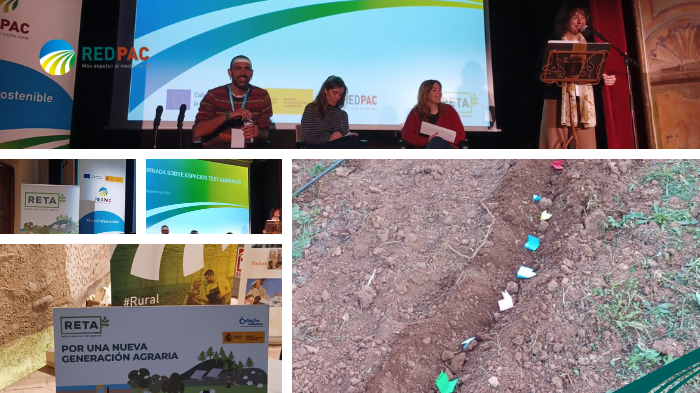
18 de December de 2024
Dinamización rural
Innovación
An "Agrarian Test Space" is a facilitation program for the installation of new farmers with little experience.
- An "Agrarian Test Space" is a facilitation program for the installation of new farmers with little experience.
- The PAC Network is organizing a workshop on this tool in Betxí, Castellón, in collaboration with RETA, the Network of Agricultural Test Spaces.
- With this tool, incorporation occurs with the development of agricultural activity autonomously and on a real scale for a limited time in the form of a test.
It is estimated that by 2050 the world's population will reach 9.7 billion. Agriculture, therefore, occupies a leading position in the challenge of feeding this population. And this is where young and emerging farmers come into play: to address new agri-food systems, generational change in the agricultural sector is essential.
To address this issue, the PAC Network organized a workshop on "Agricultural Test Spaces" in Betxí (Castellón) on November 12th. This is a facilitation tool for the establishment of new farmers with little experience. During the "test" phase, the person involved develops their agricultural activity independently and on a full-scale for a limited period of time. The project can then be consolidated or abandoned once it has been verified whether it is appropriate for their circumstances or the market. For the "space," shared governance is required, with a sponsoring entity leading the process of structuring the physical, legal, and comprehensive support required for each agricultural test space. These territorial entities include agricultural cooperatives, Local Action Groups, and local governments, primarily city councils.
In short, the goal is to mobilize new people to abandoned land areas that can be reclaimed for agricultural activity.
Program of the day
The event was organized in collaboration with RETA , the Network of Agricultural Test Spaces, which aims to promote generational renewal in the agricultural sector. To this end, the workshop first explained how agricultural test spaces work, highlighting their innovative nature in our country, given that agricultural businesses have traditionally been passed down from one generation to the next within the family. This tool identifies new profiles for incorporation into the agricultural sector without direct family ties.
The highlight of the day was the Working Groups , three in particular, in which participants discussed a topic through a facilitator. The topics covered were:
- Agricultural test spaces in the context of agricultural cooperatives.
- Agricultural test areas in the context of Local Action Groups and Rural Development Associations.
- Agricultural test areas in the context of local governments and town councils.
Through all of them, the desirable characteristics in each context were discussed to ensure that the spaces would be permanent rather than temporary, although the idea was emphasized that it's fine if an agricultural test space ends after a trial period. However, it is desirable that they remain permanently to assist the retirement of a cooperative's staff, for example.
In situ
The final part of the day concluded with an in-person visit to the “El Rajolar - Fundació Novessendes” agricultural test site , an agroecology project that has reclaimed abandoned traditional market garden land, providing participatory solutions and leveraging community resources to generate a positive impact on the people in the surrounding area.









